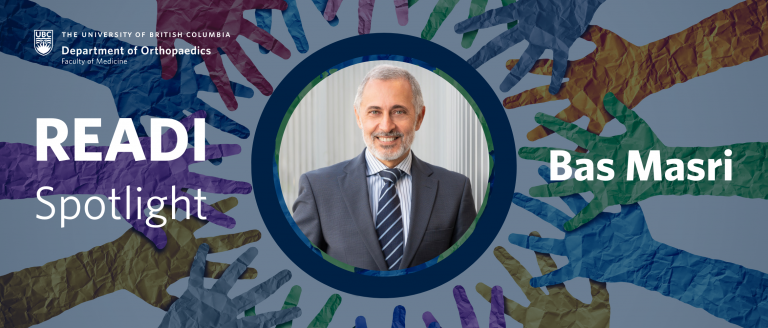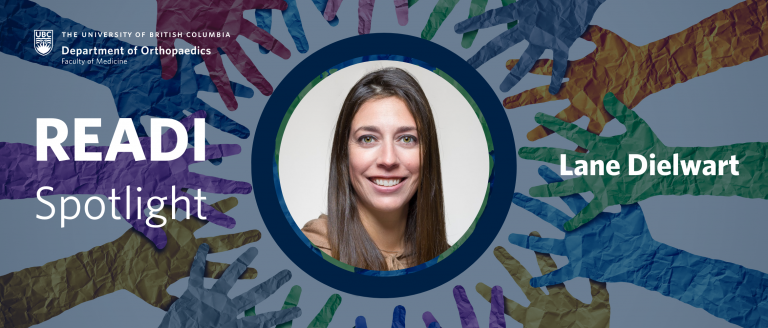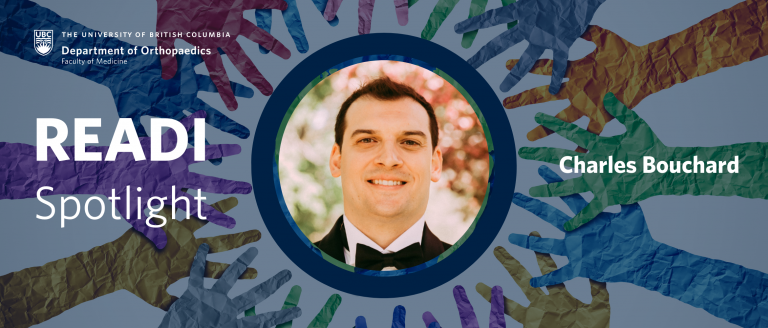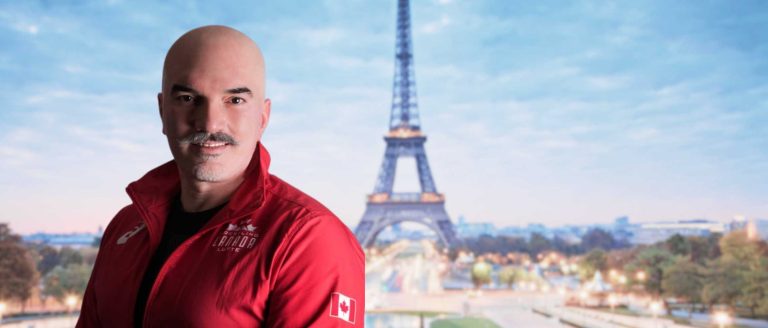By Olatioluwase (Ola) Olatona
Our bi-monthly READI Spotlight series features in-depth conversations with a UBC Department of Orthopaedics member about how respect, equity, accessibility, diversity, and inclusion (READI) appears in their life.
In our third READI spotlight of the year, we speak with UBC Orthopaedics Clinical Assistant Professor, Dr. Lane Dielwart.
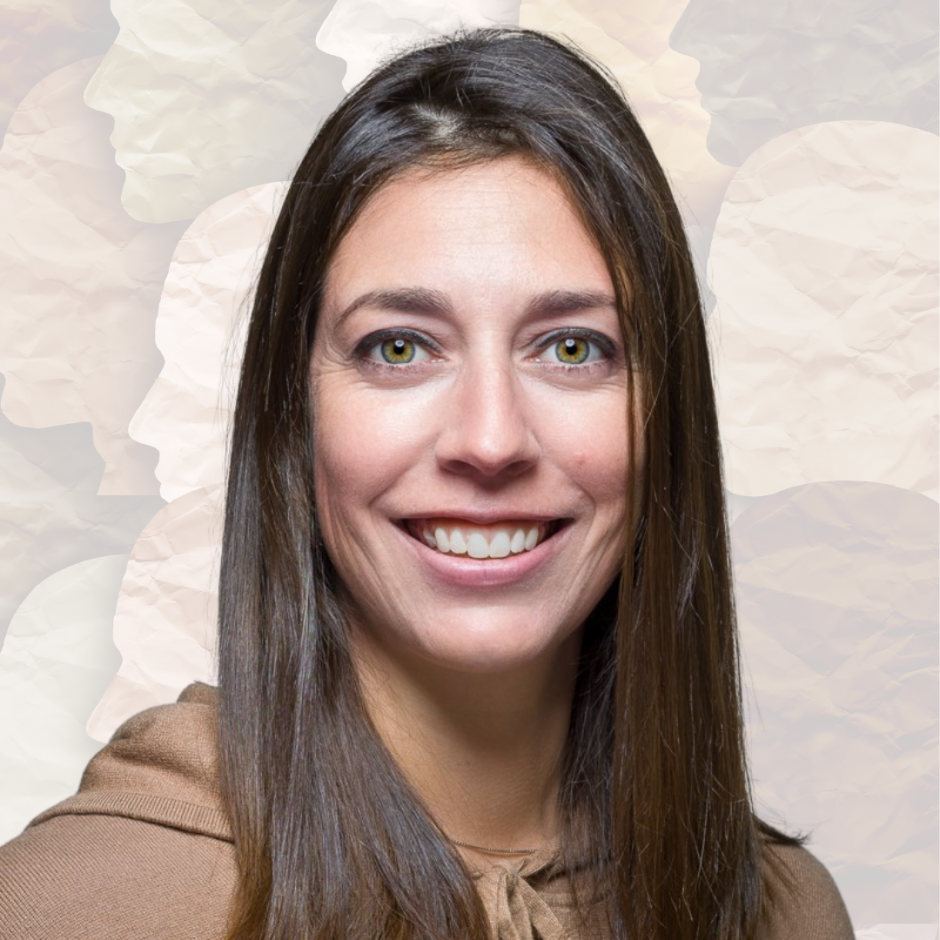
LANE DIELWART
UBC Orthopaedics Clinical Assistant Professor
Site:
Interior
Tell us about yourself, your background, and your interest in orthopedics.
Despite looking like a cookie-cutter Canadian, I actually come from a mixed-race family – my mother is Mexican, and my father is Dutch. I grew up in Calgary, and my passion at a young age was hockey, eventually completing my Undergraduate Education at RPI in upstate New York while playing NCAA hockey. I then went to Boston University for medical school. Learning medicine in Boston was an amazing experience for so many reasons, one of which was the incredible diversity of the patient population. After finishing in Boston, I came back to Canada for my residency. I am now married with 4 kids and working out of Kelowna.
Despite orthopaedics being male dominated from coast to coast, I was lucky to be one of three females in my residency class (we graduated with a 3:1 ratio of females to males). I began my coming out journey during my residency and was quite nervous because of how competitive the orthopaedic world was. As a female, it already feels like there is one strike against you and so I hid it pretty well through most of residency. On the night of my graduation dinner, I brought the woman who is now my wife, to the graduation dinner. Despite this being perhaps the most terrifying moment of my residency, I was met with nothing but acceptance from my peers and my mentors. Going through residency was one challenge, going through residency as a female is another, and going through residency as you’re coming out to yourself, your family, your friends, and your job is an entirely different challenge.
Fast forward a few years, I feel as though the BC orthopaedic community has welcomed me with open arms. In May I was elected to the presidency of the British Columbia Orthopaedic Association, and with this, I have excitingly attained three firsts; first female to hold this title, first person under 40, and first openly gay president of any provincial association in Canada.
Why orthopaedics?
I came to orthopaedics late to the game. I actually went into medical school wanting to be a pediatrician. My first two years, I was focused on that goal, but when I rotated through during clerkship, I realized it was not what I had anticipated. I never once considered surgery in my first few years of medical school, in fact, I was dead set against it. I went through the first half of my third year not seeming to like any rotation and was questioning whether I really wanted to be a doctor. Then came my surgical rotation, and without picking which surgical elective I wanted, I was slated into orthopaedics. My first case as an orthopaedic medical student was a total hip replacement. I remember standing there thinking to myself, “wow, this is incredible.” The physics, the instruments, the implants, and the incredible impact this surgery had in improving that patient’s life. Serendipitously that following weekend I went skiing and shared a lift with a lady who opened up to me randomly (not knowing that I was a doctor, nor how fascinated with orthopaedics). She told me about her life before and after her hip replacement and explained to me that it truly “saved her life”. From this moment on, I was set on orthopaedics.
What does READI mean to you?
I think it’s a great concept because it’s a platform that I wish existed back in 2009 and when I was going through my residency program. We have made huge improvements in the last 10 years in terms of the representation of females and visible and non-visible minorities. To me, it’s acknowledging that people with different backgrounds are going to have different experiences. It’s also about sharing those stories and having people understand the experiences. As patients, physicians, or any other role in the world of orthopedics, READI is important regardless of age, race, or any other identifying characteristics. I would love to be a voice for someone wondering how I got through life the way that I did.
Right now, there seems to be a sort of minority tax in orthopedics, as there is a constant want for women and other minorities to fill leadership and administrative roles, but there are only so many females, only so many LGBTQ+ members, only so many people of a visible or non-visible minority. The equality part of the EDI to me, is the thing that will protect those minorities from being overburdened. I am so proud of how far we have come in terms of EDI, but there is still so much work to be done. The most important thing to me is that EVERY person deserves to be visible, EVERY person in this department faces challenges, but it is these challenges that eventually allow them to become the best versions of themselves.
What role do you see yourself playing with regards to READI going forward?
I hope that even before I was a member of this committee, I was playing a role within READI. A few years ago, myself and another surgeon from the interior created a group we have named the BC WOW, or BCs Wondrous Orthopaedic Women. This came about when a telephone consult turned into a much greater conversation about stress, burnout, and a goal to bring together some of the female surgeons of BC. BC’s WOW has now become an open forum for discussion about family, orthopaedics, and just about everything in between.
I more so hope that my role as the BCOA president will serve to provide some visibility to those medical students or residents who might be feeling their potential is limited due to their membership of a minority group. I want to lead by example by advocating for surgeons and patients alike, while being open and honest about who I am. Hopefully this can drive further authenticity through the training program.
When you’re not working, what do you enjoy doing?
Given the fact I have four children, most of my time is taken up by them. During the winter we spend most of our time at the hockey rink, as I am now coaching my 7-year-old sons’ team, and my 5-year-old daughters’ team as well.
Learn more:
